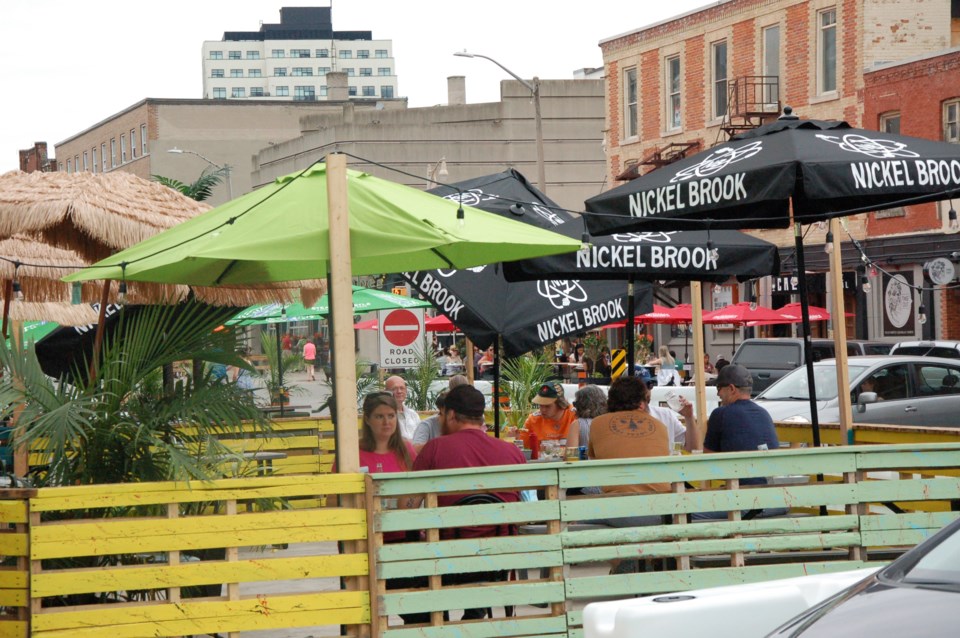The downtown patio scene will be half as large this year, with a 50 per cent drop in the number of businesses set to take part.
Now in its first year as a permanent seasonal program – it began as an emergency response to pandemic-related lockdowns, followed by a three-year-pilot project – patio season is set to get started with the delivery of barriers this coming weekend.
There are 14 patios approved to use public spaces in the downtown core, down from 28 in 2023.
In the past, businesses paid little to no fee in order to set up a patio for patrons on city owned sidewalks and on-street parking spaces. Those fees were either waived by the city or covered by provincial grants.
Under the now permanent program, participating businesses must pay $667 per season to be part of the initiative, as well as $10 per square metre of public space used each month of the program.
“I think that residents and visitors will be happy to see that many of the patios that they saw in 2023 will be back in 2024, with similar footprints,” said Alex Jaworiwsky, the city’s manager of tourism and destination development.
“We’re just really excited about the continued success of the program and we’re really thankful to the patio operators who have returned to animate the downtown streets this summer."
The head of the Downtown Guelph Business Association thinks fewer patios will mean less traffic downtown.
“I do believe that the reduction in participation will result in a reduction of traffic downtown,” wrote Chuck Nash, who is also the co-owner of Frank & Steins bar, in an email to GuelphToday. “I think scale was a big part of its success. Time will tell of course and we will be monitoring the results.”
Asked why there’s a 50 per cent drop in participation, Jaworiwsky said she didn’t know.
“There hasn’t really been input provided from operators or internally,” she said. “I wouldn’t be able to confidently answer that question.”
Barriers to protect patrons from passing traffic are set to be delivered to participating businesses this weekend, followed by patio-building efforts.
“As they build and the barriers are filled, they’ll start activating,” Jaworiwsky said.
The patio program runs through the last weekend of September.
There were about 50 overall participants in the pilot seasonal patio project last year, though that includes patios approved for private properties throughout the city. There were 28 that used public space in the downtown core.
Businesses still have an opportunity to create outdoor patios on private property, but they have to go through the standard building permit and liquor licence application processes rather than the seasonal patio program.
Patios approved for public spaces must still receive approval from the Alcohol and Gaming Commission of Ontario if alcohol is to be served.
First launched in 2020, just months after Mayor Cam Guthrie declared a state of emergency in response to the pandemic, the patio program involved the closure of Macdonell and Wyndham streets throughout the summer.
It returned in 2021 as a three-year pilot project that wrapped up at the end of last season.
That first summer the intersection was closed to vehicle traffic on weekends between May 21 and Sept. 6. There were no regular road closures in 2022 or 2023, and none are planned for this year, though there will likely be closures for specific events held downtown throughout the summer months.
